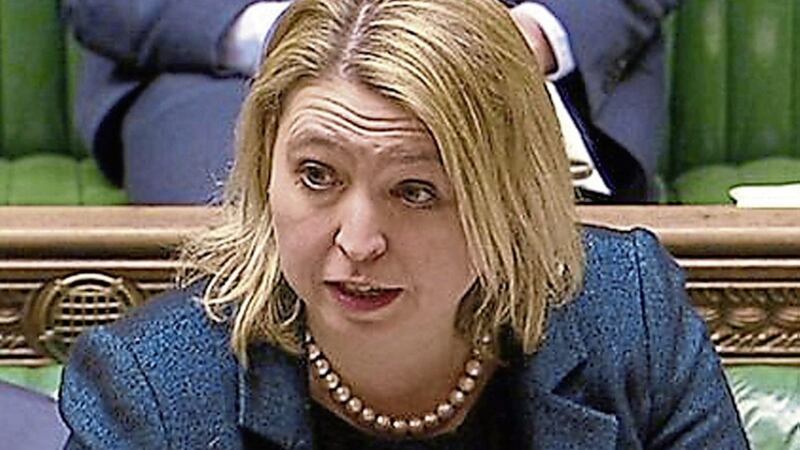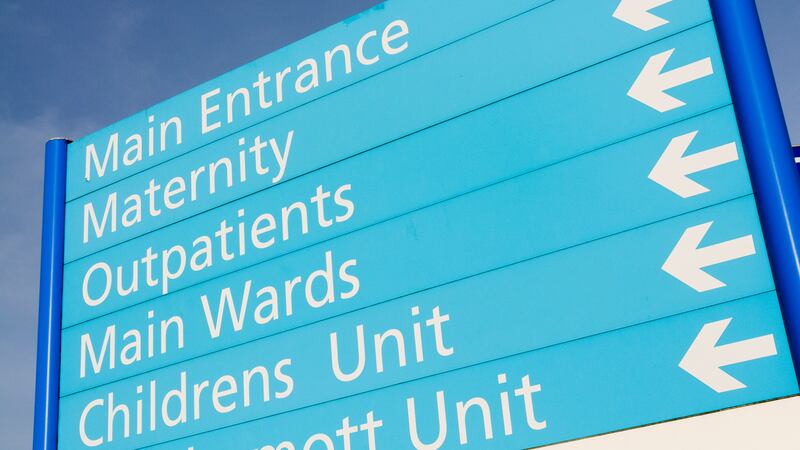SECRETARY of State Karen Bradley has been accused of “dithering” after she said she was “minded” to slash MLAs’ pay – but put off a final decision.
Mrs Bradley told MPs she would seek the views of parties in Northern Ireland before making a final statement on whether to reduce MLAs’ pay by 27.5 per cent in the ongoing absence of devolution.
But Independent MP Lady Sylvia Hermon said she was “extremely disappointed” that Ms Bradley “continues to dither about cutting the salaries of MLAs”.
“I listened very carefully to the secretary of state’s statement and noted very carefully that she was very decisive about announcing an increase in rates in Northern Ireland, I was extremely disappointed to put it mildly that the secretary of state continues to dither about cutting the salaries of MLAs,” she said.
“Doesn’t the secretary of state accept and recognise that it is morally indefensible that MLAs should continue to receive their full salary in the absence of a functioning assembly for 14 months – morally indefensible?”
Making a statement to Westminster on the financial picture in Northern Ireland in the ongoing absence of devolution, Mrs Bradley also said she wanted to consider “different arrangements” for governance amid the deadlock.
The Conservative MP indicated she was willing to examine ways of giving MLAs some form of scrutiny role on Westminster decisions, even if they were not part of a fully functioning legislature.
Such a scenario could provide a half-way house style arrangement between devolution and direct rule.
Last year Mrs Bradley’s predecessor James Brokenshire commissioned former assembly chief executive Trevor Reaney to examine the issue of paying MLAs who have now not sat at Stormont for 14 months.
He recommended a 27.5 per cent cut before Christmas, a move that would take the standard salary of £49,500 down to £35,888 in two stages.
Mrs Bradley told the Commons she would seek to introduce legislation at Westminster that would hand her the power to vary MLA pay.
“Further to that, I am minded to reduce pay in line with the Reaney Review recommendation, but I would welcome full and final representations from the Northern Ireland parties before I make a final decision,” she said.
Last week the British government tabled a budget for Stormont departments, including £410m of a £1bn investment package agreed with the DUP as part of its confidence and supply agreement with the minority Conservative administration.
Talks between the DUP and Sinn Féin to restore the power-sharing institutions collapsed last month.
Mrs Bradley said her powers as secretary of state remained limited, as was the scope of Westminster to pass laws on devolved issues.
She said that meant fundamental decisions were not being taken in Northern Ireland.
Mrs Bradley said it would therefore be “irresponsible” for the government not to consider alternative options while the impasse continued.
“Alongside this I also continue to keep under review my statutory obligation to call an assembly election,” she said.
“I would welcome the views and proposals of the Northern Ireland parties and others on how such arrangements – providing for local decision-making and scrutiny, on a cross-community basis – might be achieved in the continued absence of an executive.
“And how any such arrangements might work alongside the other institutions of the [Good Friday] agreement.
“Let me be clear that this in no way affects my commitment to the Belfast Agreement nor my commitment to continue to work to remove the barriers to the restoration of devolution.”
Meanwhile, Mrs Bradley also announced that a cap on money paid out through the Renewable Heat Incentive scheme – due to run out next month – would be extended for another year.








